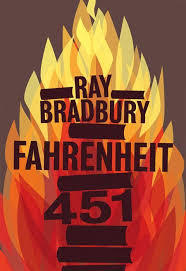
Spoiler warning. If you have not read the book, and plan to read it later, then please don’t read the following until you have done so.
Mortal fire is a fiction book that follows a small girl from some islands who was moved to a city in America. She is a genius when it comes to maths, and might have a photographic memory, which means she can remember pretty much everything she reads and hears, or sees. Her name is Canny Mochrie. Another thing about her is that she doesn’t know who her father is, and neither does her mother(For a reason explained later in the book.) Oh, and Canny can see something “Extra”, which I will also explain later. She has a step-father and a step-brother; both are rather smart. And then there is her famous mother, who is a bit…odd.
The story goes as follows. There was a coal mine accident 30 years ago, and Canny’s brother wants to investigate it. As this happens, Canny wanders into an enchanted valley, occupied almost entirely by children who all have the same last name and who can perform a type of magic. Canny realises that there is a magical language, and learns it in a matter of days, and is far better at it then most people in the valley. Before this happened, she had tried to climb a local hill in the valley, which is not a nice experience. At the top is the most powerful person alive, who she becomes friends with, possibly more.
After she stays there for a while, she realises the dangerous threat the valley poses to her, and decides to do something about it. The dangerous threat is that the valley is taking the magic from everyone, and also people’s memory’s of the valley, which could kill somebody, and will definitely change your life forever. Obviously, Canny would prefer this not to happen, so she begins to plan a way to escape this problem. Her plan is to go back in time, right back to the moment she first came into existence, and see the magic symbol that at appeared, then take this symbol and make a model of it. After doing this, she deposited it in the past with her brother, before they went to the valley. The only reason this was possible was that her mother was actually her twin sister who gave birth to her own clone. (Yeah, I know.) Then Canny left the valley, lost her memory and usage of magic, and all her skill in maths, which is where we leave the story, and skip a few years ahead. When we come back, Canny still has lost all her skills in math, to the point that it sickens her to look at an equation, and she has absolutely no idea what happened in that valley. After coming back from her brothers wedding, she decides to help clear out his room, and discovers the model she deposited with her brother in the ast. This model reminds her of the truth of what had happened, and now that she knows, she has all her magic, and knowledge, and the ability to use maths, back again. With this, she goes to the valley to break the enchantment that holds the family that lives there prisoner.
And that is the summary of the story. The way the magic works if you’re wondering, is that there was a magical language passed down through a family, which at one point was converted to the written word when somebody who could see sound converted into something everyone could read. The magic is described as “Making things stronger and better than they already are.” In reality, the magic really allows people to suggest something to happen to another object or life form, and this is only if you write directly on it.
That is the entire summary done. Please remember that this only here to help remind about what happened the book when I get around to writing a review and other things on it. And this will only be if I actually forget something, which I probably won’t, but still, always good to have a backup!
 The last book I read was “Mortal Fire”. A great book, and one that suited this topic.
The last book I read was “Mortal Fire”. A great book, and one that suited this topic.